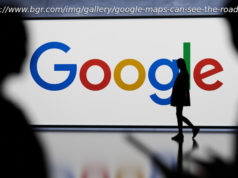Yelp continues on its relentless pursuit to make Google less monopolistic.
Jeremy Stoppelman, chief executive of Yelp, the local search and reviewing site, would like this article to be focused on his company’s growth, or on how its reviews help independent businesses, or on pretty much anything besides what it is about: how Yelp became Google’s most tenacious pest.
« If you were to have asked me 15 years ago, ‘Hey, are you going to be an antitrust crusader?’ I would have said, ‘No, I have no interest in that, ‘ » he said in a recent interview. « That was not a childhood dream. »
For six years, his company has been locked in a campaign on three continents to get antitrust regulators to punish Google, Yelp’s larger, richer and more politically connected competitor. He has testified before Congress, written op-ed columns and used Twitter to bash Google’s behavior.
Google wasn’t always a rival. At one point, it was a suitor. But out of that union that never happened was born a mighty grudge, perhaps even an obsession.
At one point, Yelp held a hackathon to create a sort of alternate-universe Google, the better for it to explain Google’s ways to regulators. And then you have Luther Lowe.
Mr. Lowe, Yelp’s vice president for government relations, once spent $3,000 on a stuffed elephant, because it had been knit by Europe’s antitrust chief.
More from The New York Times: Google, not the government, is building the future Tech’s frightful 5: They’ve got us Giving the behemoths a leg up on the little guy
Unlike Google, whose office is full of artwork and free food, Yelp’s Washington presence is just a rented co-working space. So Mr. Lowe keeps the elephant at Yelp’s San Francisco headquarters, where there is more room. « This is a shoestring operation, » he said.
But after years of trying and failing, that operation has finally landed a good punch. On Tuesday, the European Union fined Google $2.7 billion — the largest antitrust fine in its history — for unfairly favoring its own services over those of its rivals. The fine was related to Google’s shopping service, so strictly speaking it had nothing to do with the Yelp-Google dispute, which is part of a separate investigation into local search.
Still, Yelp and other American technology companies pushed hard to get regulators to issue a bold condemnation of Google’s behavior toward competitors, signing a letter that accused Google of « destroying jobs and stifling innovation. » And by affirming that Google is the dominant company in online search — something most people take for granted — Tuesday’s decision is likely to help Yelp’s case.
Asked about future investigations, Margrethe Vestager, the antitrust chief, offered a diplomatic answer, saying that even though other cases make similar allegations against Google, they must be considered one by one.
« The one thing that has sort of changed from yesterday, before the decision was taken, was that now we will consider Google as a dominant company, » she said.
Yelp is one of a number of American companies — Microsoft and Oracle are others — that have agitated for the world’s governments to take up the fight against Google. It is one tiny player, but through persistence and doggedness, and by being loud and public with its complaints, it has become an unusually prominent voice.
Mr. Stoppelman feels he has no choice. Like a lot of small internet companies, Yelp lives in a world where one company, Google, accounts for an outsize share of its business, and could destroy it at any time. Its complaints to regulators are less about working toward some epic and definitive conclusion than they are about continuously brushing back the giant so Yelp can have more room to grow.
« It’s like, you get traffic from this company, and this company is a monopoly, » he said. « If you’re me, it seems like the obvious move. »
Yelp’s campaign against Google provides an inside look at a constant battle in the technology industry: the conflict between large companies that control how people use technology and the internet, and the smaller, more vulnerable businesses that live inside those platforms.
Be it Netscape, whose 1990s-era internet browser was the catalyst for antitrust charges against Microsoft and its Windows operating system, or Spotify, whose music service must now compete with Apple’s own music app, any company trying to build a business on another company’s system runs the risk of being snuffed out or swallowed up.
For Yelp, the issue is where Google displays « organic » website rankings — the ones spit out by its algorithm — in relation to the « vertical » results that Google itself provides.
For example, say you searched for « steakhouse New York. » The first set of results, consuming the entire screen of a mobile phone, is a map and a set of restaurants from Google’s local offering. The results have information like hours, stars and customer reviews. Below that are links to reviews, articles and other sites. Like Yelp.
Yelp’s contention is that by putting its own results at the top, Google is giving itself an unfair advantage, because those results don’t have to jump through the same algorithmic hoops non-Google sites are subjected to. And since Yelp says few people go beyond the first or second result, companies like Yelp are made invisible.
Google disagrees. The company declined to comment beyond its official statement on the European fine, but it has repeatedly said that as smartphones displace desktop computers as the internet gateway, people just want the answer to their question — not a link to a site where they might have to repeat the query — and that Google’s results oblige.
Local queries — such as looking for nearby restaurants — account for roughly a third of all search traffic. So Google has a big incentive to keep people within its search engine, where it can sell ads, instead of sending them to Yelp, which also sells ads.
Separately, some businesses have claimed that Yelp stacks the deck by playing up bad reviews when businesses don’t buy ads from it. Yelp has denied those claims.
This dispute would be moot if people were in the habit of using a variety of search engines. Google has become so universally known and depended upon that it is sometimes hard to remember that it is a company, and it exists to make money.
But as Microsoft learned in its 1990s antitrust battle, companies can face a heap of legal problems when their platform becomes so popular that people hardly use anything else. With one strike against it now in Europe, Google may be increasingly careful about how it treats competitors throughout the search engine.
« Even if nothing else takes place, a consequence of this kind of intervention, so visible and so significant, has been to give other firms more room to maneuver, » said William E. Kovacic, a former chairman of the United States Federal Trade Commission and now a professor at the George Washington University Law School.
Google is sitting on close to $100 billion in cash, so the $2.7 billion fine — a sum larger than Yelp’s market capitalization — is hardly unmanageable.
A larger concern is that the decision, and the potential for other antitrust actions, will limit Google’s ability to position ads around its search box. And for all the talk about self-driving cars and delivery drones, Google is still the foundation of a big advertising company.
« We’ve never been as concerned as we are following this ruling, » said Ben Schachter, an analyst with Macquarie Securities, after the fine was announced.
The impact is hard to discern, because it’s impossible to judge whether Google has done wrong — and if so, how to make things right — without delving into minute detail about software algorithms and concepts like « consumer harm. » Explaining all that, in a way that ordinary people can understand, has been Yelp’s principal challenge with regulators. The war over how Google serves up information has been an information war.
In summer 2004, a few months before the highly anticipated moment when Google first took its shares to market, Mr. Stoppelman got the flu. He searched the internet for a doctor, but instead of learning anything — like whether a doctor’s patients were satisfied, or the ease of getting an appointment — he kept landing on insurance websites.
This gave him an idea: How about a site where users rate and review local services? He and a co-founder got $1 million from investors and began work on the site that became Yelp. A year later, Yelp signed a two-year licensing deal that allowed Google to use Yelp content.
« It was better to be friends than enemies at that stage, » Mr. Stoppelman said.
Later, when the deal came up for renewal, Google told Mr. Stoppelman that it would soon add a feature allowing its own users to review and rate local services. Worried that Google wanted to create a parallel service that would snuff out his company, Mr. Stoppelman declined to renew the license.
Two years later, Google offered to buy Yelp for $550 million. One concern analysts raised about the proposed deal was that if Google owned Yelp, it might steer users toward Yelp instead of its organic search results — that is, the kind of steering Yelp says Google is now doing for its own benefit. The deal fell apart, however, and Google focused instead on building its own offering.
By 2011, Google was facing inquiries by various federal and state authorities along with regulators in Europe and Asia. It had steadily added services focused on areas like local businesses, comparison shopping and travel, and companies were complaining that it was giving its own properties preferred treatment in results.






